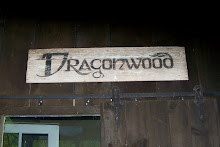The following article is from CNNMoney.com, hardly a "right wing" voice. If you own a small business, are self employed or even make a few extra dollars a year doing craft fairs or farmer's markets this effects you so I recommend reading this then talking with your accountant or tax advisor.
NEW YORK (CNNMoney.com) -- An all-but-overlooked provision of the health reform law is threatening to swamp U.S. businesses with a flood of new tax paperwork.
Section 9006 of the health care bill -- just a few lines buried in the 2,409-page document -- mandates that beginning in 2012 all companies will have to issue 1099 tax forms not just to contract workers but to any individual or corporation from which they buy more than $600 in goods or services in a tax year.
The stealth change radically alters the nature of 1099s and means businesses will have to issue millions of new tax documents each year.
Right now, the IRS Form 1099 is used to document income for individual workers other than wages and salaries. Freelancers receive them each year from their clients, and businesses issue them to the independent contractors they hire.
But under the new rules, if a freelance designer buys a new iMac from the Apple Store, they'll have to send Apple a 1099. A laundromat that buys soap each week from a local distributor will have to send the supplier a 1099 at the end of the year tallying up their purchases.
The bill makes two key changes to how 1099s are used. First, it expands their scope by using them to track payments not only for services but also for tangible goods. Plus, it requires that 1099s be issued not just to individuals, but also to corporations.
Taken together, the two seemingly small changes will require millions of additional forms to be sent out.
"It's a pretty heavy administrative burden," particularly for small businesses without large in-house accounting staffs, says Bill Rys, tax counsel for the National Federation of Independent Businesses.
Eliminating the goods exemption could launch an avalanche of paperwork, he says: "If you cater a lunch for other businesses every Wednesday, say, that's a lot of information to keep track of throughout the year."
The paper trail
Why did these tax code revisions get included in a health-care reform bill? Welcome to Washington. The idea seems to be that using 1099 forms to capture unreported income will generate more government revenue and help offset the cost of the health bill.
A Democratic aide for the Senate Finance Committee, which authored the changes, defended the move.
"Information reporting improves tax compliance without raising taxes on small businesses," the aide said. "Health care reform includes more than $35 billion in tax cuts for small businesses ... indicating that during these tough economic times, Congress is delivering the tax breaks small businesses need to thrive."
The new rules could drastically alter the tax-reporting landscape by spotlighting payments that previously went unreported. Freelancers and other independent operators typically write off stacks of business expenses; having to issue tax paperwork documenting each of them could cut down on fraudulent deductions.
More significantly, the 1099 trail would expose payments to small operators that might now be going unreported. If you buy a computer for your business from a major chain retailer, the seller almost certainly documents the revenue. But if you buy it from Tim's Computer Shack down the street, Tim might not report and pay taxes on his income from the sale.
The IRS estimates that the federal government loses more than $300 billion each year in tax revenue on income that goes unreported. Using 1099s to document millions of transactions that now go untracked is one way to begin to close the gap.
While all but unnoticed at the time -- a Pennsylvania business group issued the first warning last October as the idea emerged in draft Senate legislation -- the 1099 rule changes began sparking attention in the blogosphere in the last week. The libertarian Cato Institute called it a "costly, anti-business nightmare"; Rep. Dan Lungren, R-Calif., introduced legislation last week that would repeal the new 1099 requirements.
The notion of mailing a tax form to Costco or Staples each year to document purchases may seem absurd to small business owners, but that's not the worst of it, tax experts say.
Marianne Couch, a principal with the Cokala Tax Group in Michigan and former chair of a citizen advisory group to the IRS on small business and self-employed tax issues, thinks the bigger headache will be data collection: gathering names and taxpayer identification numbers for every payee and vendor that you do business with.
But she also sees a silver lining in the new law.
Her firm already recommends collecting tax data on all vendors, since the IRS requires that you have it on hand at the time of the transaction, not just at tax-filing time. And eliminating the corporate and goods exemptions at least means that businesses will no longer have to pour over every transaction to determine if it needs a 1099. The new rule is simpler: If it crosses the $600 threshold, it's in.
"There are probably going to be some hiccups along the way, because systems will need to be redesigned," says Couch. "But overall I believe it will make compliance on the payor end a lot more streamlined and easier."
In any case, the final impact of the law won't be known until the IRS issues its regulations on the new law, which aren't expected to arrive until sometime next year. The IRS has not yet commented on when it will release regulations or schedule public hearings, and an agency spokesman was unsure when it will do so. The new requirements kick in January 1, 2012.
Take Back Control of Your Power
3 months ago


























1 comment:
Hey,I just wanted to say good job. Now I know why no one has left a comment.
Post a Comment